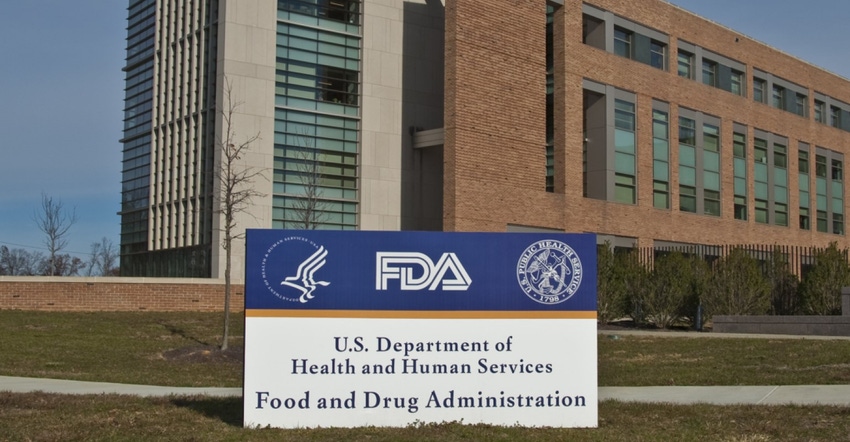FDA Issues Warning Letters to Supplement Marketers on Picamilon
Picamilon is the subject of a lawsuit that was filed against GNC by Oregon Attorney General Ellen Rosenblum.

FDA on Nov. 30 warned five dietary supplement companies that they have been marketing products that are misbranded because they include a substance that does not qualify as a dietary ingredient.
The substance picamilon “is a unique chemical entity synthesized from the dietary ingredients niacin and gamma-aminobutyric acid," FDA declared in the warning letters, which the agency made public Wednesday via a Q&A on picamilon. “As such, it is absorbed into the body, crosses the blood-brain barrier and accumulates in the brain as a separate chemical entity."
FDA sent warning letters to DMB Nutrition, ICF International, Top Secret Nutrition LLC, Applied Nutriceuticals Inc. and SDC Nutrition Inc. None of the companies immediately responded to requests for comment.
Picamilon is the subject of a lawsuit that was filed Oct. 22 against General Nutrition Corp. (GNC) by Oregon Attorney General Ellen Rosenblum. In a declaration attached to Rosenblum’s lawsuit, an FDA official stated picamilon didn’t qualify as a dietary ingredient. Rosenblum characterized picamilon as a synthetic chemical that has been used in some countries as a prescription drug to treat neurological conditions.
GNC pointed out retailers widely sold picamilon until Rosenblum’s lawsuit was filed, and FDA had not previously taken any action on the substance through a warning letter or other notification.
Sen. Claire McCaskill (D-Missouri) last month criticized FDA for failing to act on picamilon. In letters to 10 retailers including GNC, McCaskill asked the companies to voluntarily remove picamilon-containing products from their stores and websites. GNC has said it stopped selling products with picamilon upon learning that FDA did not consider the substance a legal dietary ingredient.
“I am glad that the FDA is finally taking steps to remove this substance from virtual and online shelves—but the old saying ‘better late than never’ certainly applies here,” McCaskill said Wednesday in a press release. “It’s hard to understand how it took this long to send a handful of letters to prevent the sale of an ingredient that the FDA determined months ago was not a dietary ingredient. This entire episode is an illustration of how regulatory safeguards that are in place to protect American consumers are falling dramatically short.”
In the recent warning letters, FDA gave the companies 15 days to respond. The agency warned that failure to cease distribution of the picamilon-containing products could result in enforcement action without additional notice.
Daniel Fabricant, Ph.D., executive director and CEO of the Natural Products Association, also questioned why the FDA didn't act first on picamilon.
“If the agency had a problem, why didn’t they do this first?" asked Fabricant, a former government official who led FDA's Division of Dietary Supplement Programs.
“Why is the FDA secondary to the states? That does seem counter to their role as the public health authority," Fabricant said in a phone interview.
About the Author(s)
You May Also Like






.png?width=800&auto=webp&quality=80&disable=upscale)